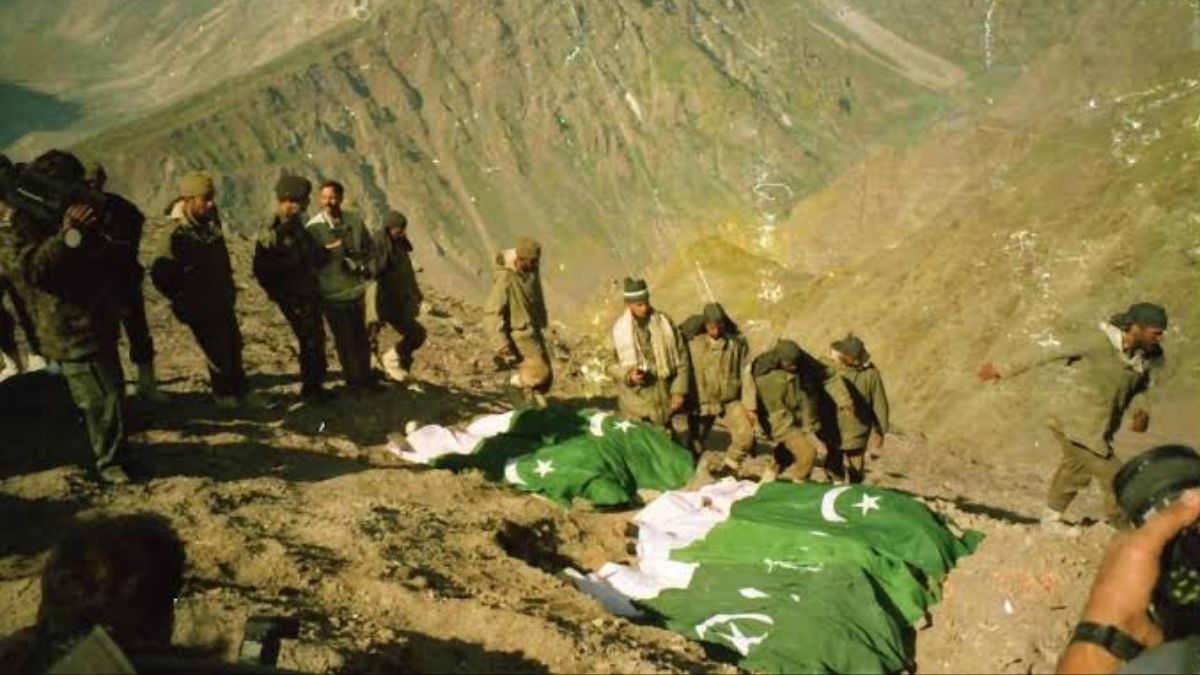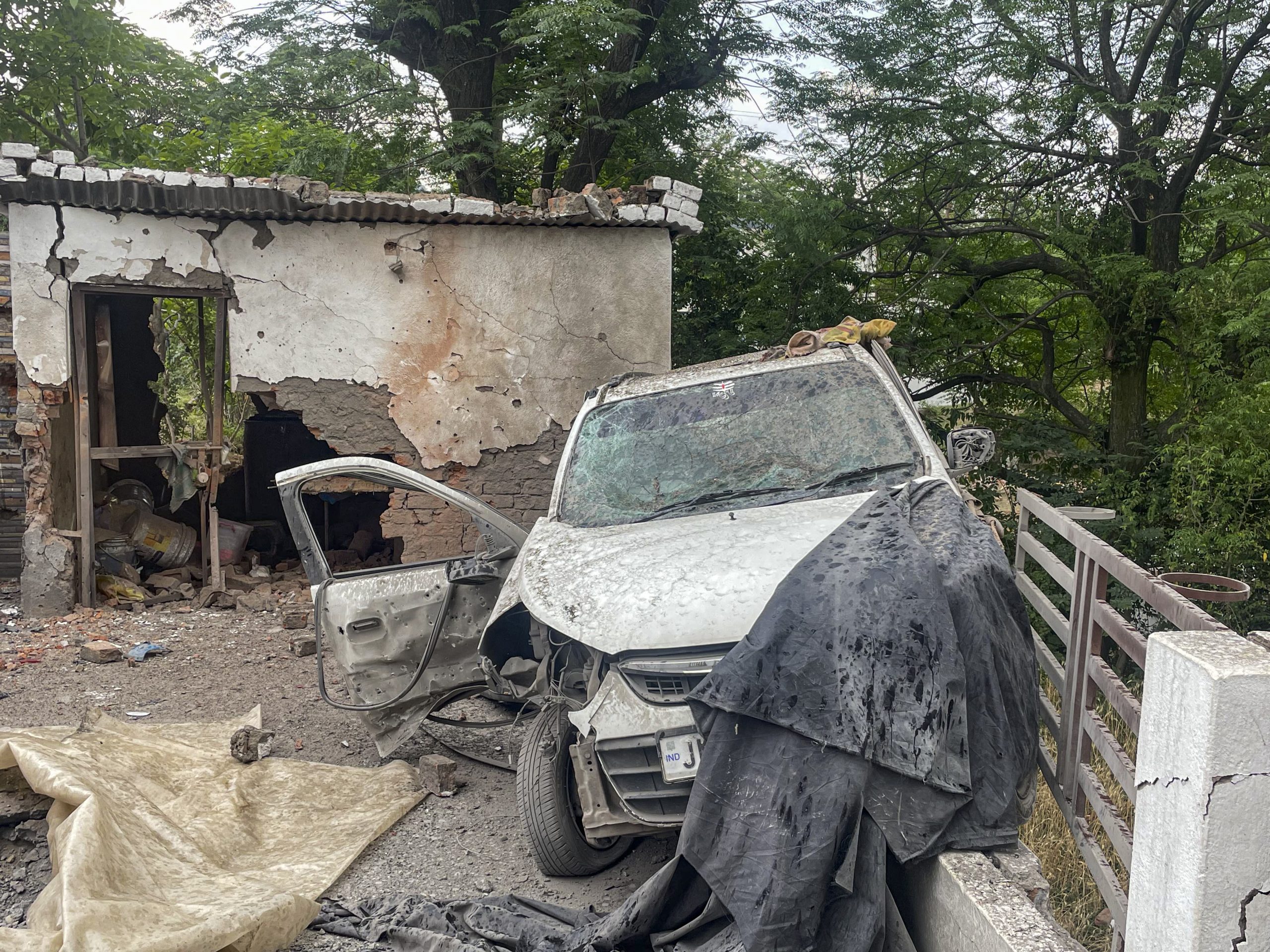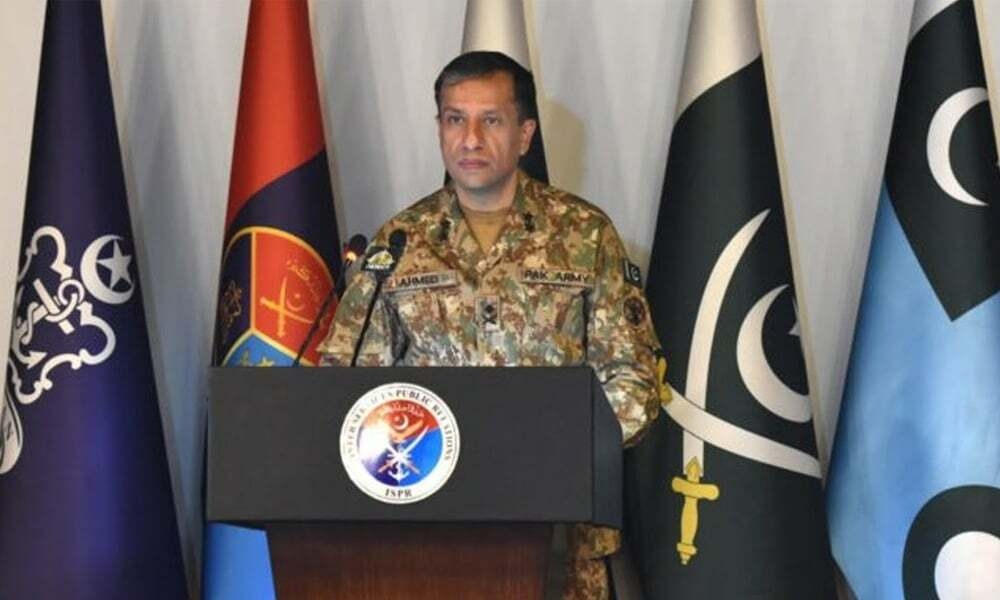Soldiers Pak Dared Not Claim, India Laid To Rest— Dark Pattern From Kargil War Continues

Indian Army buried fallen soldiers of Pakistan Army that the country refused to claim as their own. Image courtesy: Reddit.com
Kargil Vijay Diwas: During the 1999 Kargil conflict, Indian troops recovered scores of bodies from the icy heights of the Himalayas. These were fallen soldiers who belonged to Pakistan’s Northern Light Infantry (NLI).
Yet, despite mounting evidence, Pakistan refused to acknowledge that regular army personnel were involved, let alone accept the remains. Instead, Islamabad clung to the discredited narrative that the dead were Kashmiri “freedom fighters,” disowning the men who had fought and died under its very flag.
It is now a well-recorded and even more well-known fact that Indian troops buried the Pakistani soldiers with full military honours, having found official army documents and identification tags on many of the corpses.
One such soldier was Captain Karnal Sher Khan.
Captain Karnal Sher Khan of the 12th NLI led a counter-attack against Indian positions on July 5th, days after Indian forces captured the peak in one of the conflict’s fiercest engagements. His leadership and grit, under relentless Indian fire, won him respect from an enemy commander.
Brigadier M.P.S. Bajwa, who led the Indian Army’s 192 Mountain Brigade, ensured Captain Khan’s body was retrieved with dignity. In his uniform pocket, Bajwa placed a hand-written note— a citation for gallantry, citing the bravery of a man who had fought honourably for his country. Pakistan had at first refused to acknowledge the bodies of its regular troops, but this gesture forced a reappraisal.
Captain Khan was later awarded the Nishan-e-Haider, Pakistan’s highest military honour. His family wrote a letter of thanks to the Indian Army, a striking moment of humanity amid the politics of denial, according to a report by ThePrint. The episode stands out for the violence it encapsulates, but more importantly for the ethical contrast it exposed: one army quietly burying the enemy dead with military honours, while the other denied they were soldiers at all— until honour was compelled by the actions of an adversary.
It would still be in the realm of acceptability if the episode was a one-time thing During the Kargil war. However, that is not the case. Pakistan has a documented pattern of refusing to recognise or claim its fallen soldiers. A similar approach was observed in incidents along the Line of Control (LoC), where Indian authorities offered to return bodies of Pakistani soldiers killed in cross-border raids, only to be met with silence. In one instance, a Border Action Team (BAT) assault led to Pakistani casualties deep inside Indian territory, but Pakistani military officials refused to take back the remains.
Over the years, military analysts have noted that the policy serves two strategic purposes: maintaining plausible deniability in front of the international community and avoiding domestic backlash over covert or undeclared operations.
But for the soldiers’ families and peers, the consequences are severe. Many are kept in the dark or forced into silence, with funeral rites conducted away from public scrutiny and no formal recognition of sacrifice. This secrecy is expected to breed resentment and emotional trauma among families of the deceased.
The disownment, some believe, have also led to internal discontent within Pakistan’s own ranks. While official military graveyards exist, some bodies are buried without ceremony or acknowledgement, often in cantonment areas, deliberately hidden from the public.
The case of Captain Sher Khan stands out as a particularly jarring contradiction. Though his bravery was undeniable (his valour was cited even by Indian officers) he was only formally recognised after the Indian Army forwarded a recommendation. Pakistan initially denied his military status, only later awarding him the Nishan-e-Haider under pressure, and quite reluctantly.
Apart from Pakistan’s repeated refusal to own up to its soldiers’ deaths, the country’s military establishment also blurs the lines between regular troops and irregular combatants. During the Kargil War, Pakistan insisted the intruders were not part of its army, despite clear evidence to the contrary. This tactic of ambiguity has long been part of Pakistan’s strategic doctrine— whether in Kashmir, Balochistan or Afghanistan— where it deploys fighters under the guise of local militants or mujahideen.
This blending of regular and irregular forces, often termed “hybrid warfare,” makes attribution difficult but also undermines the morale of formal troops. Such practices compromise the integrity of the armed forces and leave personnel feeling expendable pawns.
The Indian Army’s treatment of enemy dead, in stark contrast, has often included military honours and proper burial, even when the opponent refuses to recognise them. This distinction in ethos has been noted in various war memoirs and international military assessments. For Indian veterans of the Kargil war, the burial of Pakistani soldiers under tricolour tents with prayers and respect was not about politics but professionalism.
At the heart of the matter is a fundamental question of military accountability. What does it say about a state that refuses to claim its dead? Pakistan’s armed forces have over the decades evolved into a power centre operating beyond, and sometimes above, civilian government’s oversight. This has bred a culture where deniability trumps duty, and disinformation overrides discipline.
The Kargil episode remains the most visible scar— but the practice continues, largely unchecked.







